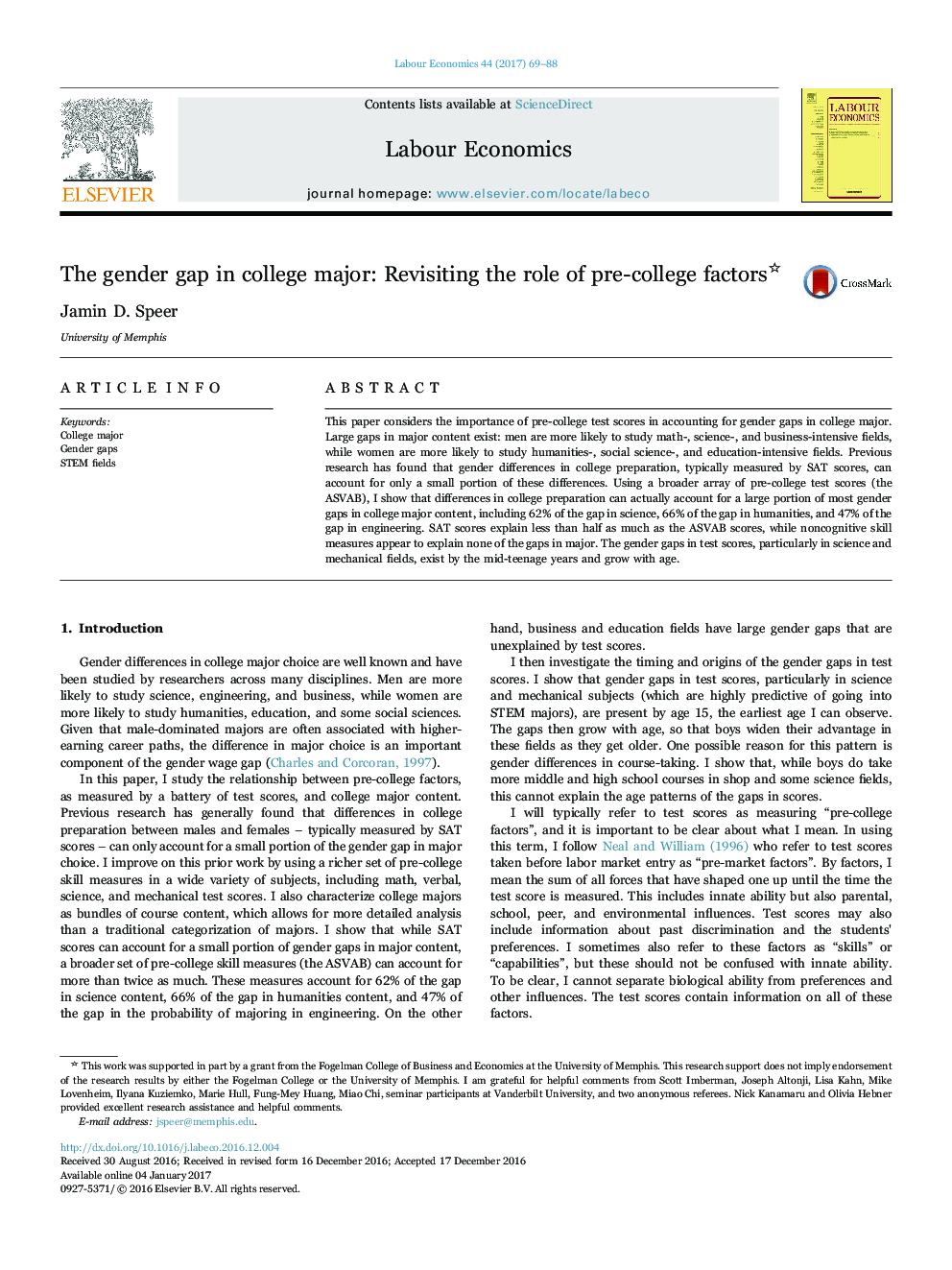| Article ID | Journal | Published Year | Pages | File Type |
|---|---|---|---|---|
| 5102025 | Labour Economics | 2017 | 20 Pages |
Abstract
This paper considers the importance of pre-college test scores in accounting for gender gaps in college major. Large gaps in major content exist: men are more likely to study math-, science-, and business-intensive fields, while women are more likely to study humanities-, social science-, and education-intensive fields. Previous research has found that gender differences in college preparation, typically measured by SAT scores, can account for only a small portion of these differences. Using a broader array of pre-college test scores (the ASVAB), I show that differences in college preparation can actually account for a large portion of most gender gaps in college major content, including 62% of the gap in science, 66% of the gap in humanities, and 47% of the gap in engineering. SAT scores explain less than half as much as the ASVAB scores, while noncognitive skill measures appear to explain none of the gaps in major. The gender gaps in test scores, particularly in science and mechanical fields, exist by the mid-teenage years and grow with age.
Keywords
Related Topics
Social Sciences and Humanities
Economics, Econometrics and Finance
Economics and Econometrics
Authors
Jamin D. Speer,
